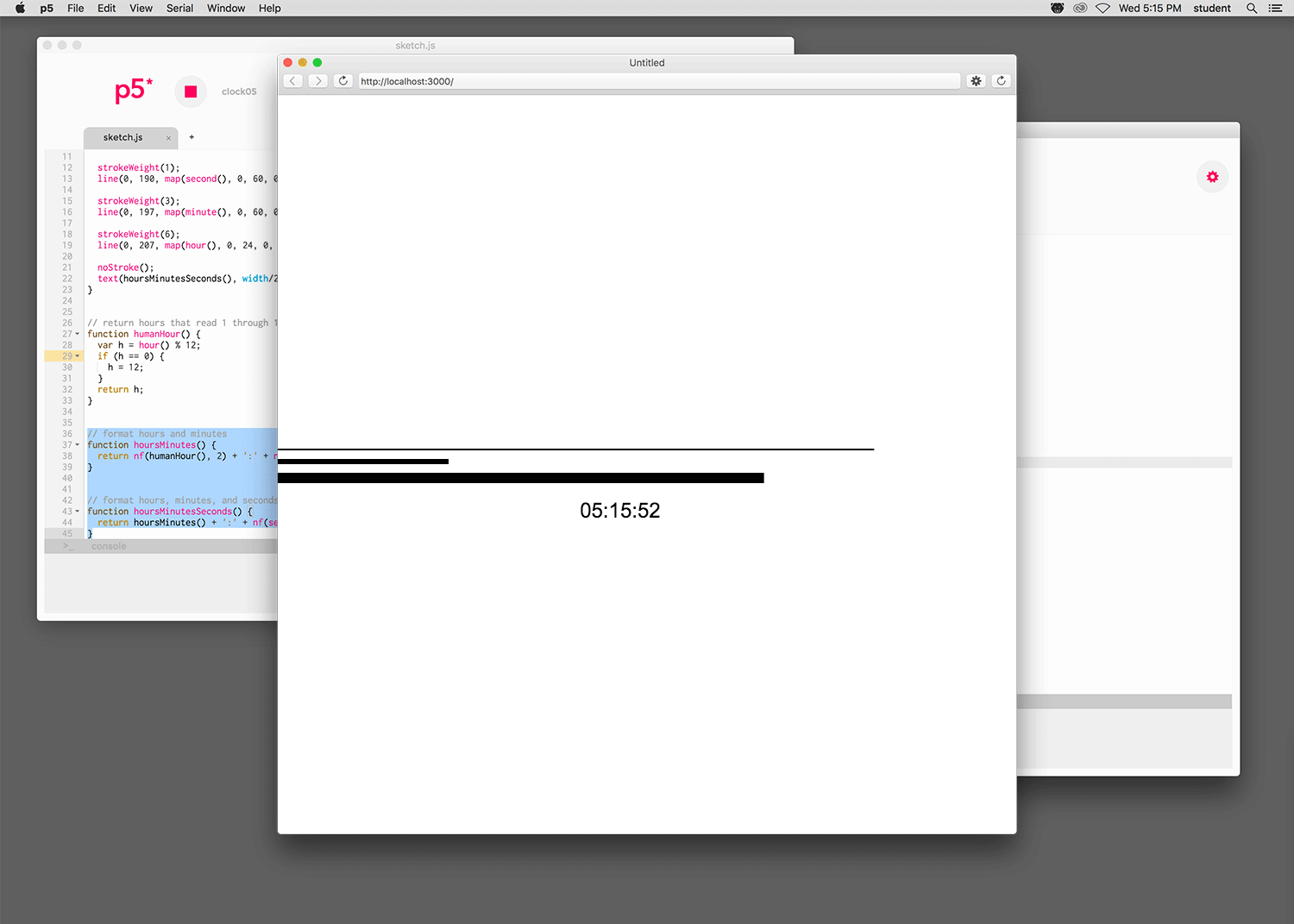

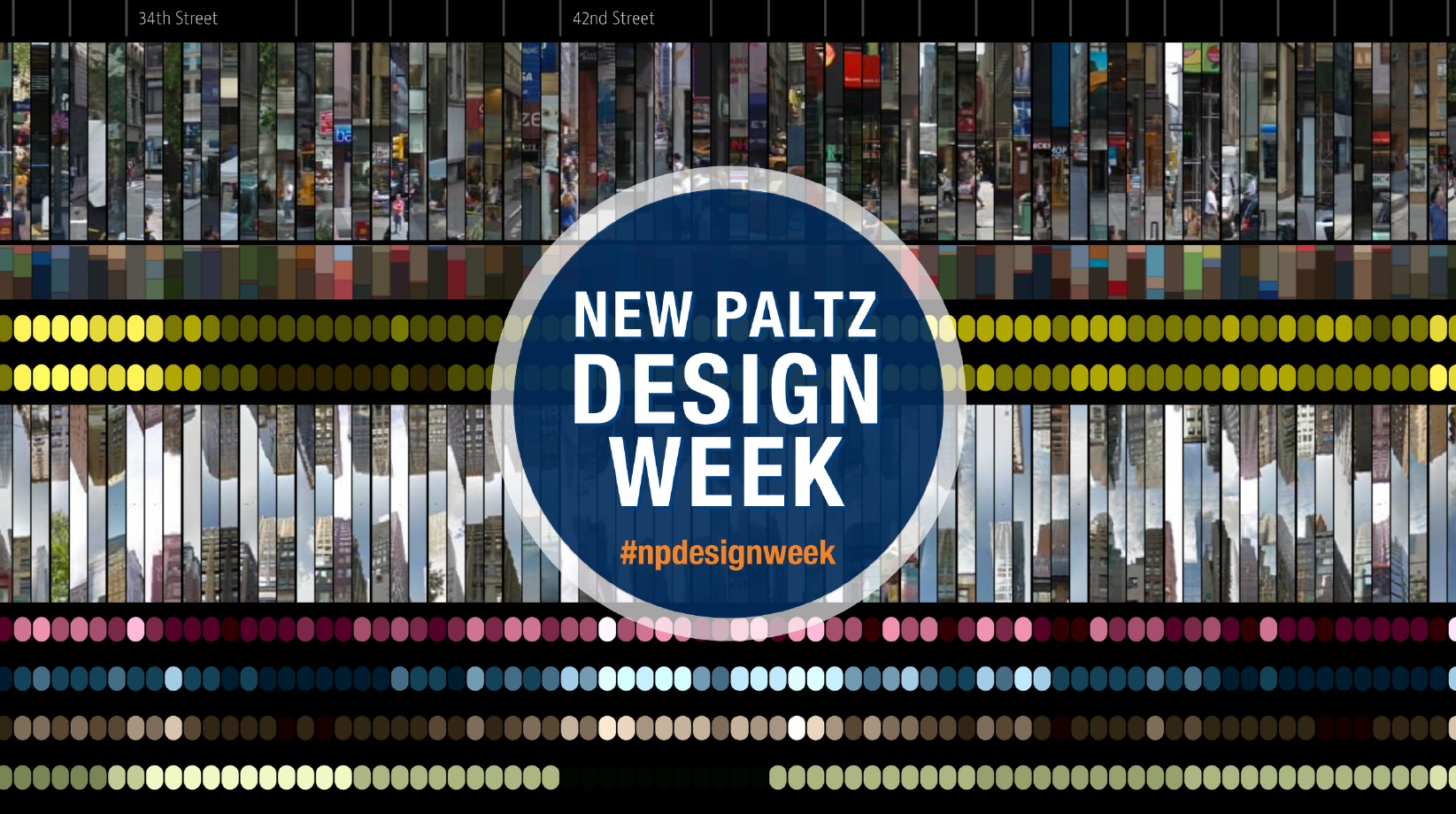
Dimitry Tetin, a former classmate of James and newly minted professor of graphic design at New Paltz, reached out to us last month to see whether Fathom would be interested in speaking at the university’s new Design Week conference. The event featured presenters from a wide range of practices, including representatives from Shapeways and Kia Motors, author–artist Lev Manovich, and our Boston friends from Nervous System.

Upon arriving in New Paltz the evening before our presentation, the first thing we noticed was the starry sky over the hotel where we spent the night. Given the rural setting, the fact that the hotel was actually called a lodge, and several Fathomistas’ shared interest in Twin Peaks, certain comparisons were inevitable. No mysterious or paranormal activity was reported, however.

As with all of Fathom's projects, we build our talks around audience and context. In this case, the attendees were predominantly graphic design students and faculty. So as James prepared to kick off our session with Accessible Depth, an introduction to Fathom’s work and process, he was excited to tap into our shared design school experience to make the talk resonant with this group in particular. How can we get graphic design students interested in data? How can we reach them as visual storytellers? What would we have wanted to learn more about in our design school days? These were the questions at the front of our minds.
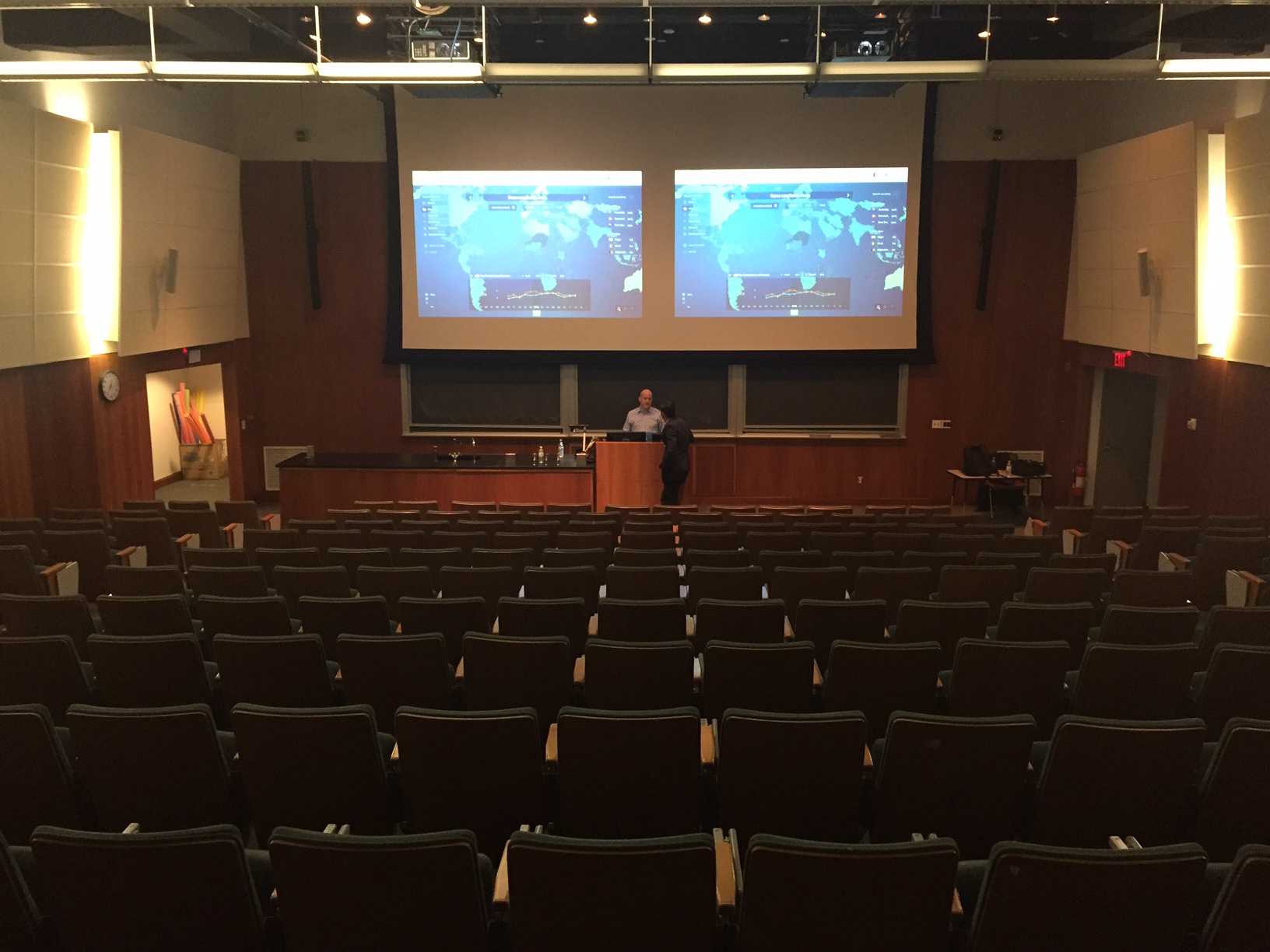
More than walking through images of past projects, James put a strong emphasis on Fathom’s perspective. We don't simply execute visual iterations around content that gets handed to us, but are instead actively involved in the discovery and communication of ideas. James illustrated this by detailing our thoughts on the design process, the way we construct narrative through data exploration, and our unique integration of design, computation, and research. The talk prompted some great audience questions about Fathom’s practice, use of tools, and of course what qualities we are looking for in job and internship candidates!
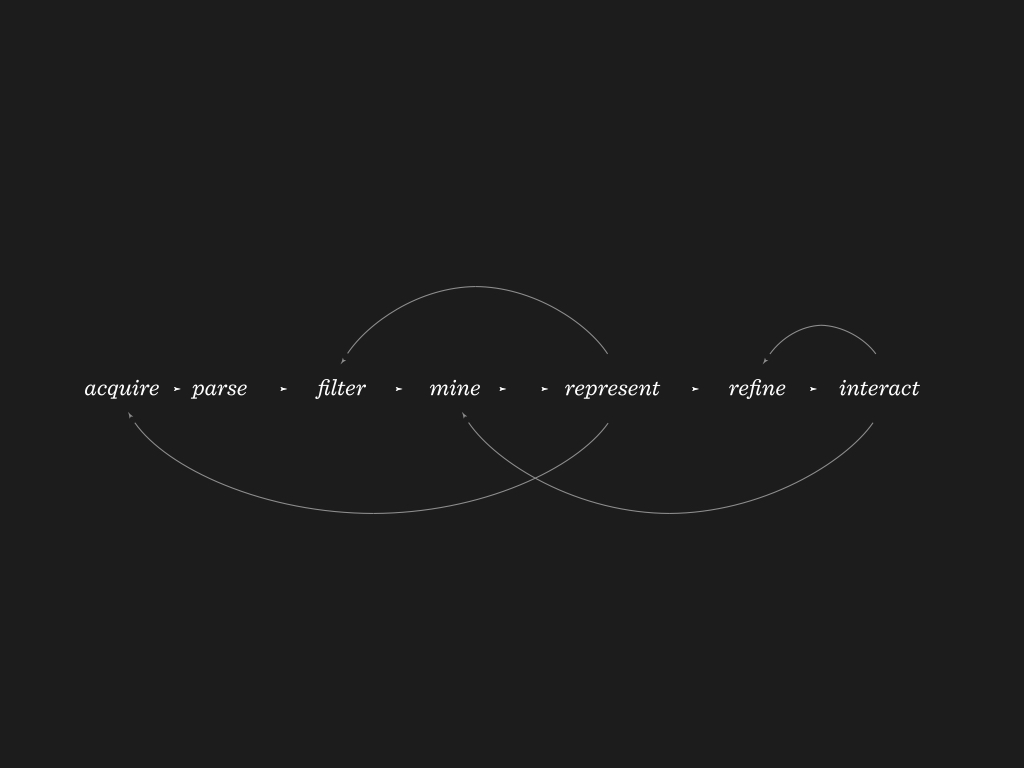
James’s lecture drew a crowd of faculty and students to the Drawing with Data workshop, where I introduced basic concepts of coding and data visualization using P5JS. As before, the audience was mostly graphic design students, which gave us a common starting point as we planned the class. The main question, however, was what we and the students should try to accomplish within the context of a three-hour workshop.
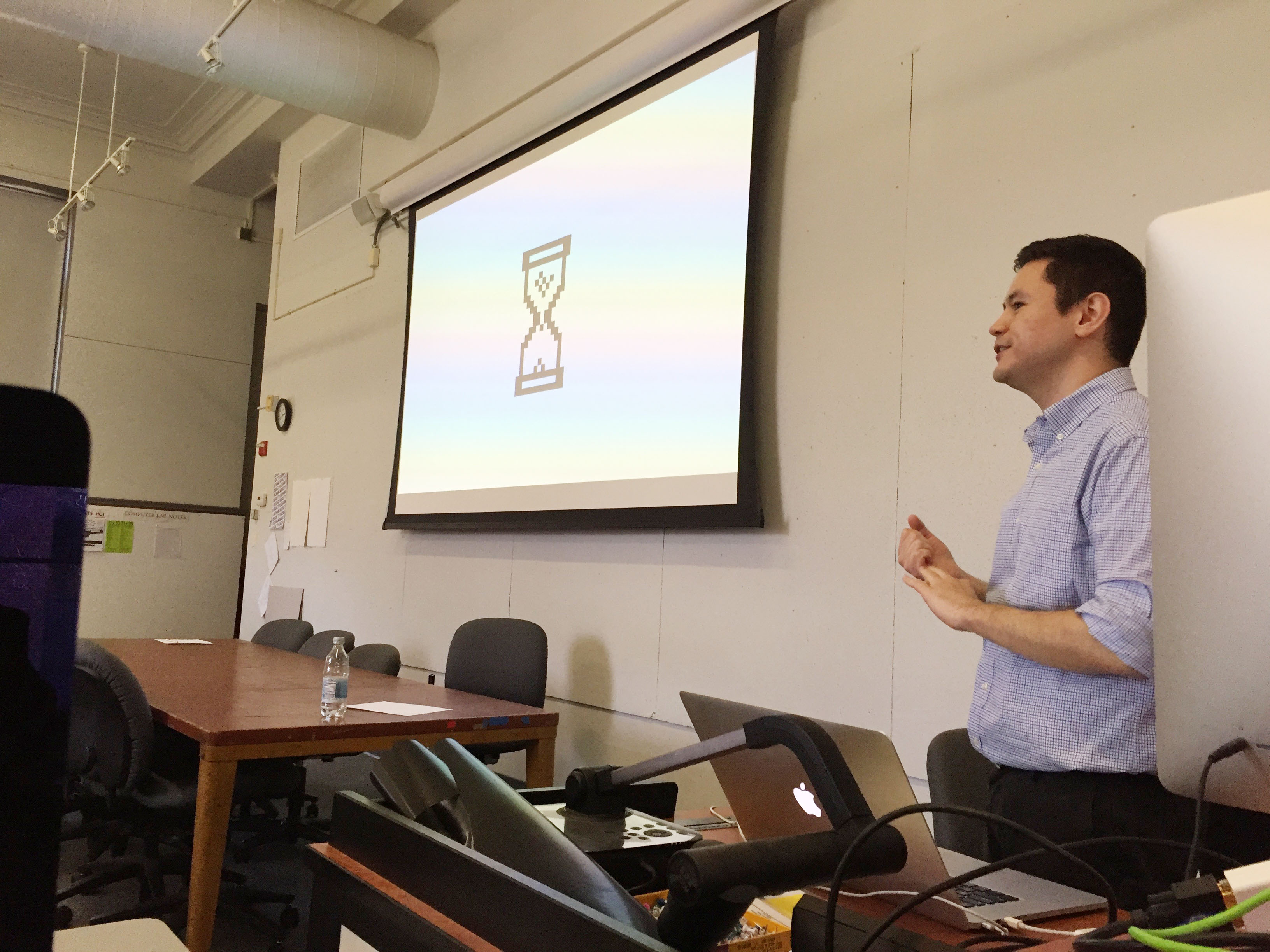
I led off by showing how coding can empower designers, and why Fathom likes working with data. We also offered the students conceptual hooks to think critically about design, and the visual maps we make between categories and numbers. This introduction flowed naturally into several live coding tutorials, followed by a hackathon-style session where students experimented with ways to represent time. We’ve found that clocks are a great introductory data set; they provide an easily obtainable, manageable set of numbers in intuitive categories. Plus the data is dynamic—it changes in real-time (in fact, it is real time).
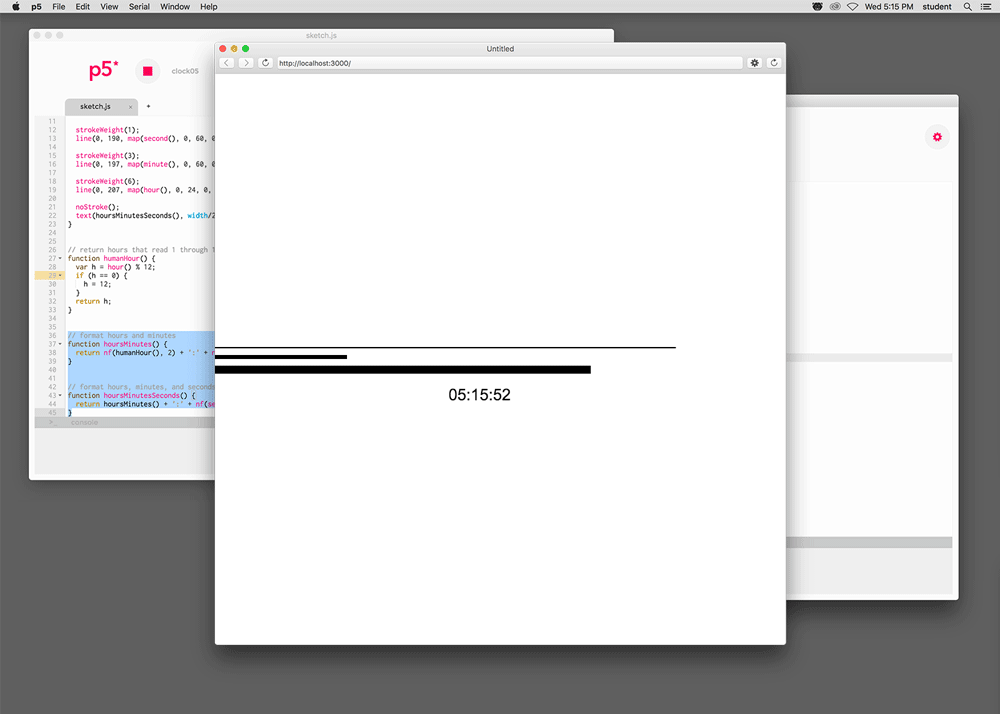
Our goal for the workshop was to provide a point of departure for getting involved in code and data, and we were quite happy with the results. The students, many of whom had little or no prior coding experience, hacked, tweaked, cut-and-pasted, and coded from scratch to create a variety of digital timepieces. Like the lecture, the workshop generated discussion around important topics such as choosing the best design tool for a given project, balancing one’s designerly vision with personal technical limitations, and further avenues for learning more about information design and coding.
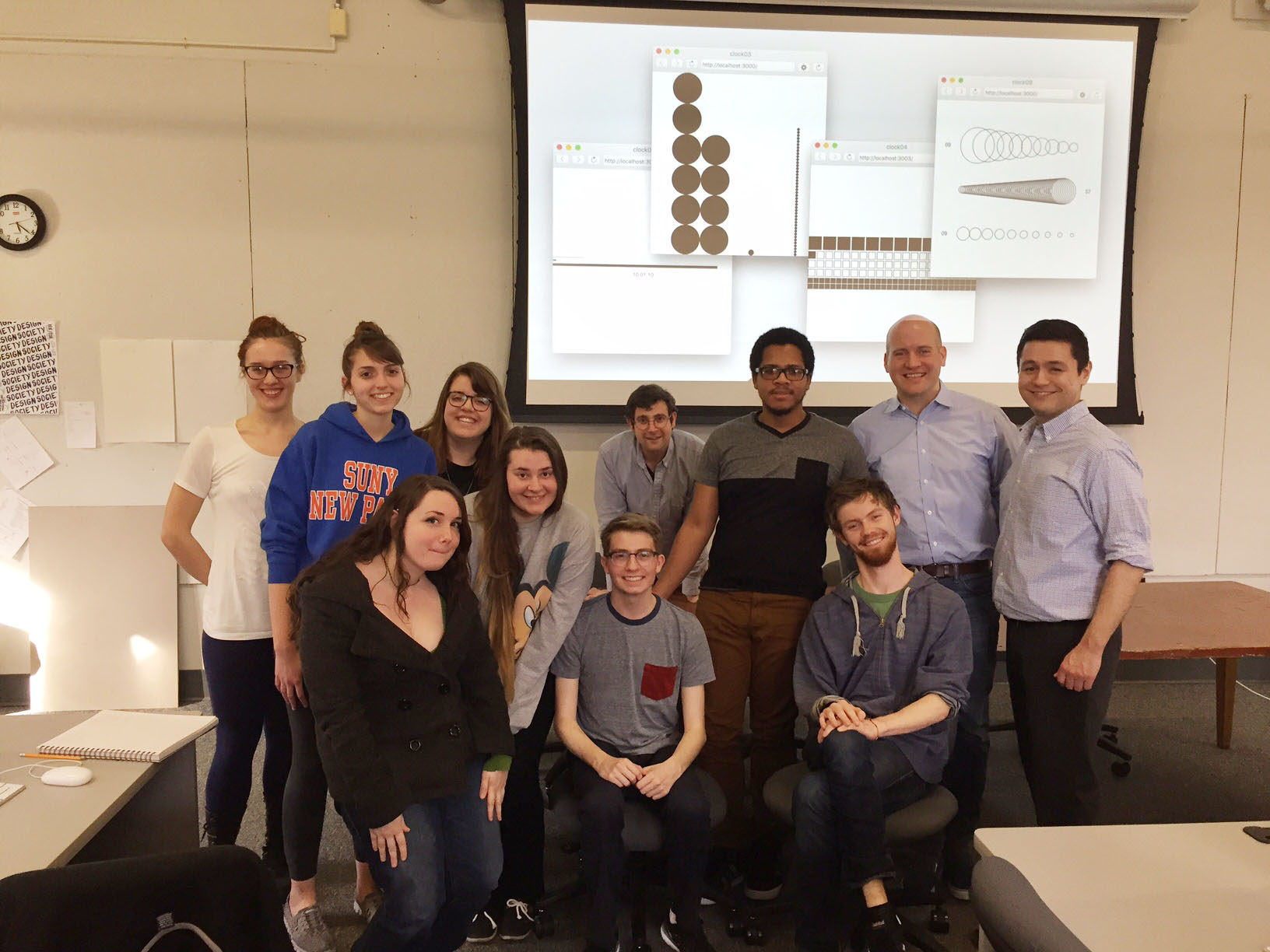
An inside informant told us that no trip to New Paltz would be complete without getting takeout from Mexicali Blue, to sample their amazing burritos and endless variety of hot sauces. For the record, James went with garlic salsa, while I tried the coconut and raspberry hot sauces.
Thank you, New Paltz! We're looking forward to Design Week 2017.
We’d love to hear what you’re working on, what you’re curious about, and what messy data problems we can help you solve. Drop us a line at hello@fathom.info, or you can subscribe to our newsletter for updates.